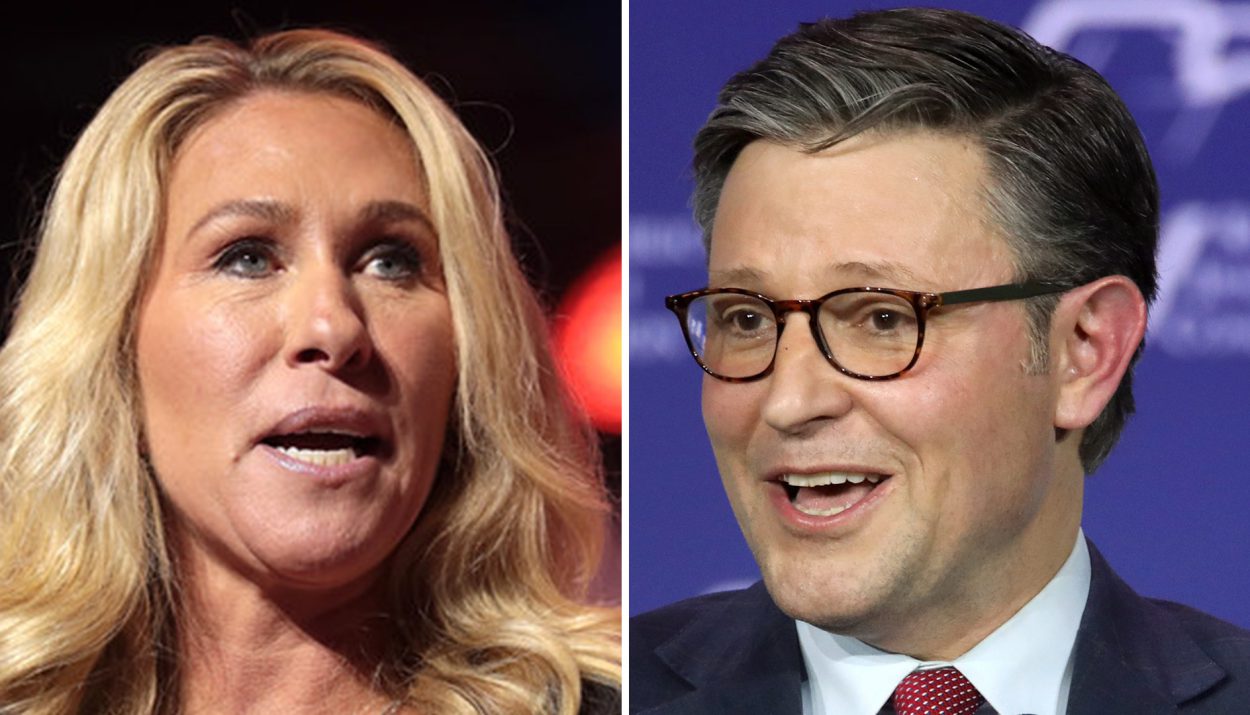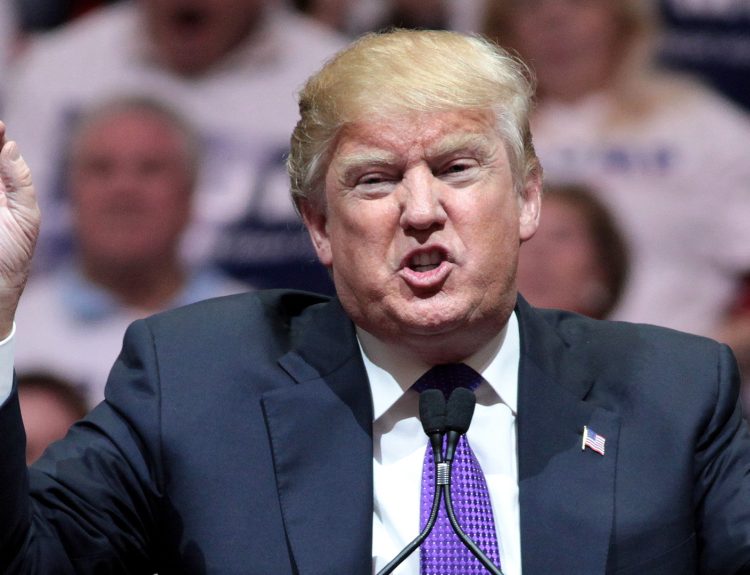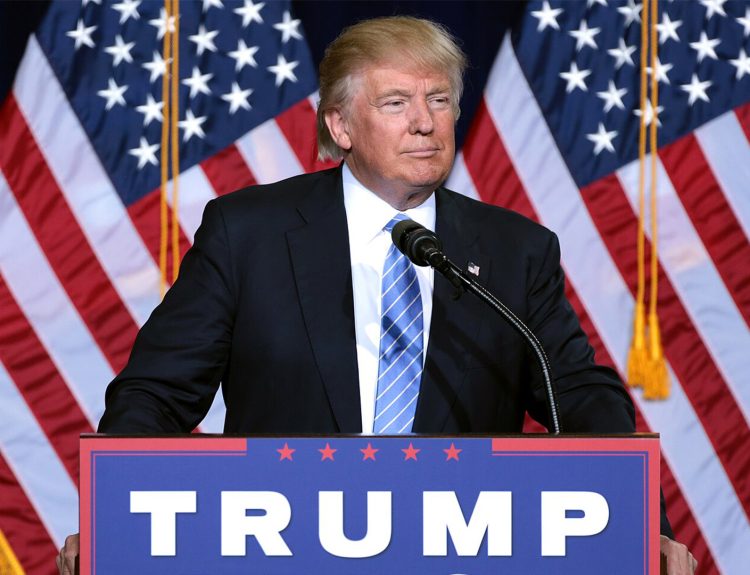Marjorie Taylor Greene has been pushing to get Mike Johnson ousted from his position as speaker of the house, but Johnson surprisingly doesn’t think about her all that much. The speaker made his point clearly speaking to Fox, stating that despite her efforts, she doesn’t often cross his mind at all. Let’s see if this is bad news.
Tensions Over Foreign Aid Package
The latest clash between Johnson and Greene stems from the House Speaker’s support for a $95 billion foreign aid package that provides military assistance to Ukraine, Israel, and Taiwan.

Despite bitter opposition from Greene and other Republican hardliners, the legislation passed through Congress and was ultimately signed into law by President Joe Biden.
Greene Calls for Johnson’s Resignation
Greene’s response to Johnson’s backing of the foreign aid package was swift and severe. She called for his resignation, accusing him of “betraying Republicans by handing the gavel to Joe Biden.”

Greene had previously filed a motion to vacate in March, which could potentially trigger a House vote on whether Johnson should be ousted as Speaker. The motion has not yet been initiated yet.
Johnson Dismisses Greene’s Efforts
During an appearance on Fox News, Johnson was asked about Greene’s efforts to unseat him. In a dismissive tone, he stated, “I don’t think about her at all.” This might raise Greene’s ire and push her to redouble her efforts.

The Speaker also acknowledged the challenges of uniting the Republican party, referring to “very individualistic, individual-minded Republicans” who resist moving together as a bloc.
Republican Infighting Over Greene’s Actions
Greene’s move against Johnson has sparked an angry response from some other congressional Republicans. Senator Thom Tillis lashed out at Greene, calling her “uninformed” and “a total waste of time.”
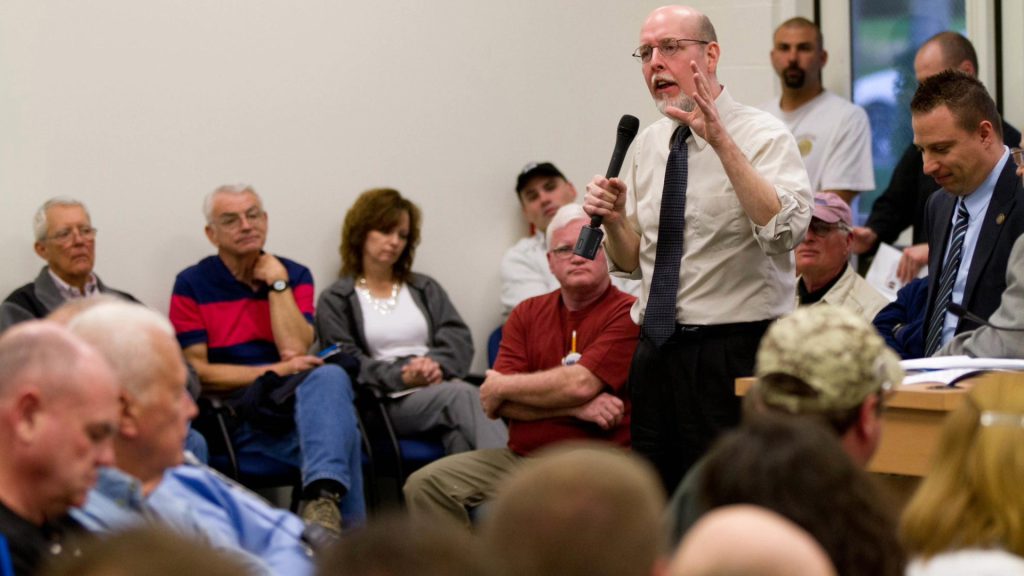
He further described her as “a horrible leader” who is “dragging our brand down.” Republicans have had a hard time uniting recently, especially after their division on who their next presidential candidate should be.
Reflecting the Republican Base or a Fringe Element?
While Greene’s detractors within the GOP dismiss her as a fringe figure, some political analysts argue that she better represents the current Republican grassroots than her moderate critics.
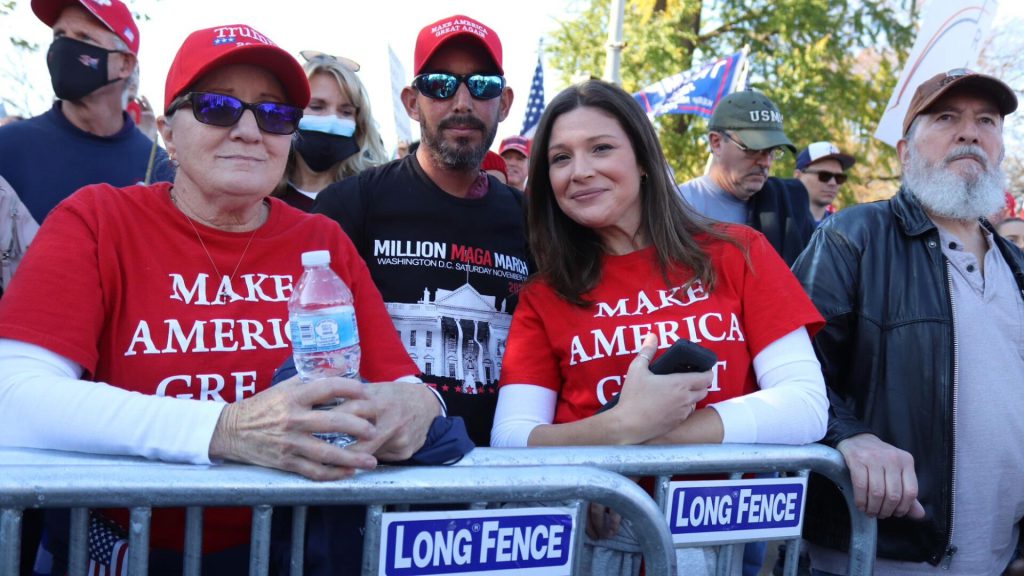
Thomas Gift heads the Centre on U.S. Politics at University College London. He contends that Greene aligns more closely with the “median Newsmax-watching, MAGA-hat-wearing conservative” than moderates like Mitt Romney.
The Struggle for Power Within the Republican Party
Gift suggests that Greene and the GOP’s “blow up the system” wing hold significant political clout in the nearly evenly divided House, possessing the ability to call a snap vote on the speakership.

This dynamic highlights the ongoing struggle for power and influence within the Republican Party, with competing factions vying for dominance. From the outside, the Republicans have a hard battle keeping their party together.
The Threat of a Motion to Vacate
In January 2023, Kevin McCarthy agreed that a single House representative could trigger a motion to vacate as part of his bid for the speakership. This turned out to be a bad idea.

Florida Republican Matt Gaetz subsequently utilized this provision, leading to McCarthy’s removal and eventual replacement by Johnson. If things continue as they are, the current speaker might follow in McCarthy’s footsteps.
The Potential for Another Speakership Vote
If Greene or another GOP hardliner pushes for a motion to vacate to be taken up, it would trigger a vote on whether Johnson remains Speaker. In this scenario, his fate could potentially depend on whether House Democrats move to support him or allow his ouster.
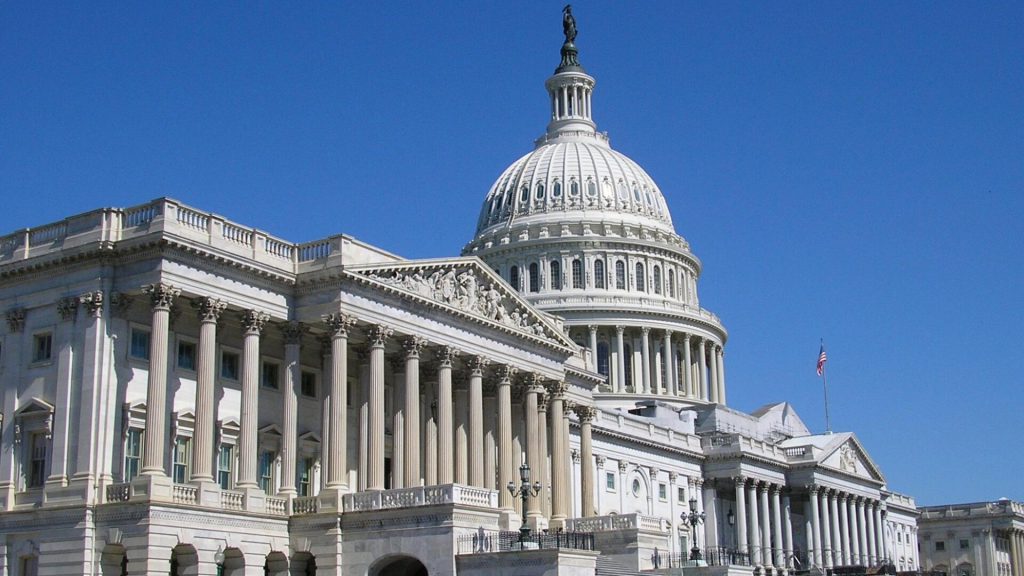
House Democrats may decide that having a different speaker is better, but Johnson has a few critical benefits, mainly that he’s not as far-right as Greene and her ilk. Democrats would prefer a more moderate speaker.
The Importance of Party Unity
Johnson’s comments about the challenges of uniting the Republican party underscore the importance of maintaining a cohesive front, particularly in a narrowly divided House.
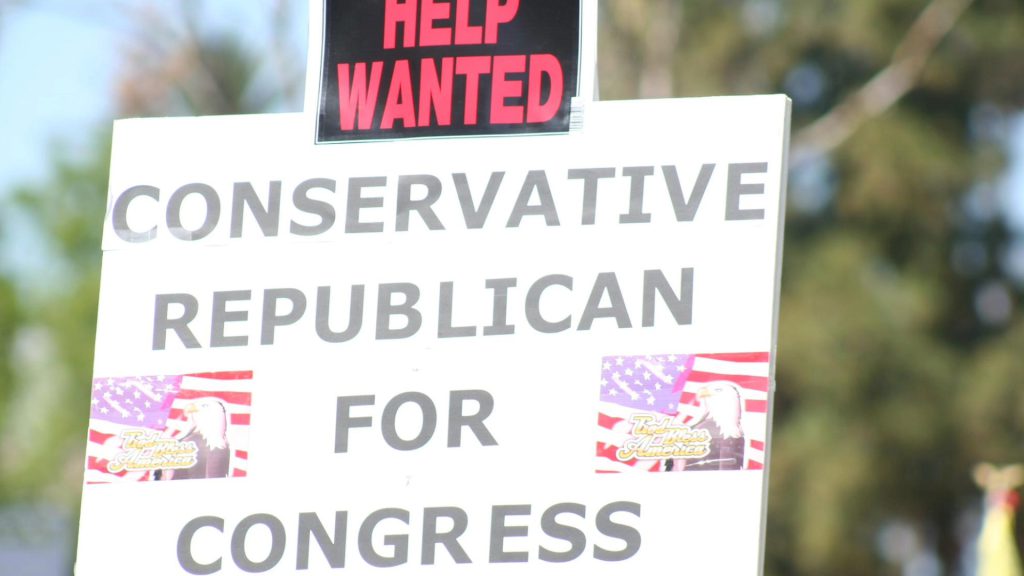
Divisions and infighting within the party could undermine its legislative agenda and weaken its position in negotiations with Democrats. If the party can’t stand together, it will fall apart much more easily.
The Role of Ideological Divides
The clash between Johnson and Greene also highlights the ideological divides within the Republican party. In recent years, the GOP has faced a lot of internal strife, with polarization within the party being a sticking point.

Hardliners like Greene advocate for more confrontational and uncompromising stances, while others seek a more moderate and pragmatic approach. Moderate Republicans like Mitt Romney were once the norm. Hardliners are slowly taking over.
The Impact on Legislative Priorities
The ongoing tensions between Johnson and Greene and the broader divisions within the Republican party could impact the party’s legislative priorities and make it less effective as a lawmaking outfit.

Disagreements over issues like foreign policy, government spending, and social issues could hinder the party’s ability to advance its agenda effectively.
The Balancing Act for Republican Leadership
Republican leaders like Johnson face the challenge of balancing the demands of various factions within the party while maintaining a unified front and advancing their legislative goals.

Navigating these internal dynamics will require skillful leadership and a willingness to find common ground amid diverse perspectives.
The Role of Public Perception and Messaging
Beyond the internal party dynamics, the public perception and messaging surrounding the Republican party’s infighting could also shape public opinion and electoral outcomes.
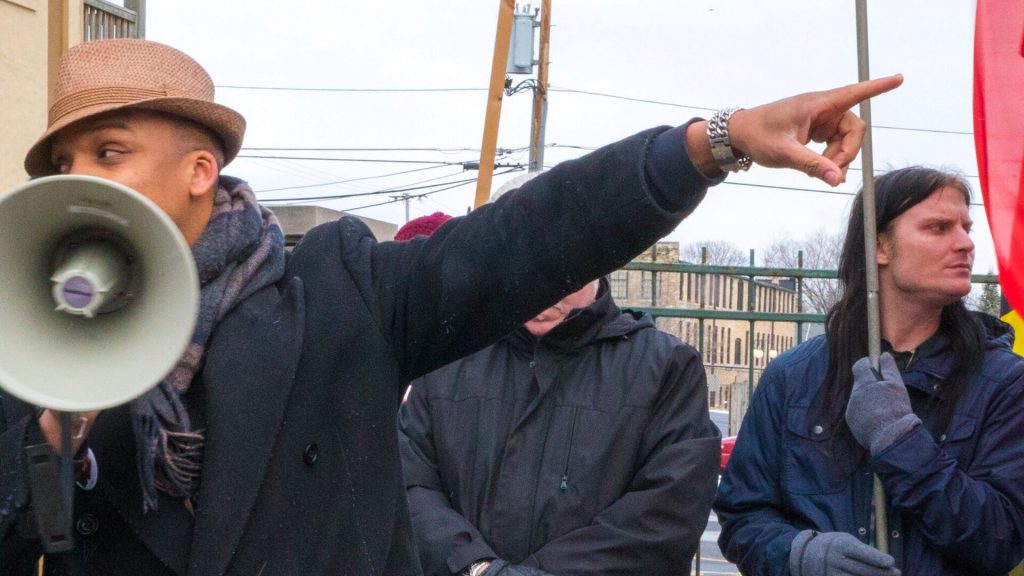
Effective communication and presenting a cohesive and compelling vision will be crucial for maintaining the party’s support base. The existing support base is already teetering, and excess pressure might topple it.
Looking Ahead: Resolving Conflicts or Deepening Divides?
As the 2024 election cycle approaches, the Republican party must grapple with these internal conflicts and determine whether to resolve them through compromise and unity or allow the divides to deepen further.

The outcome of this internal struggle could have far-reaching implications for the party’s future direction and electoral success. With so many people within the party ranks feeling disenfranchised and unrepresented, the GOP may have to look inward for stability before attempting to regain power.

